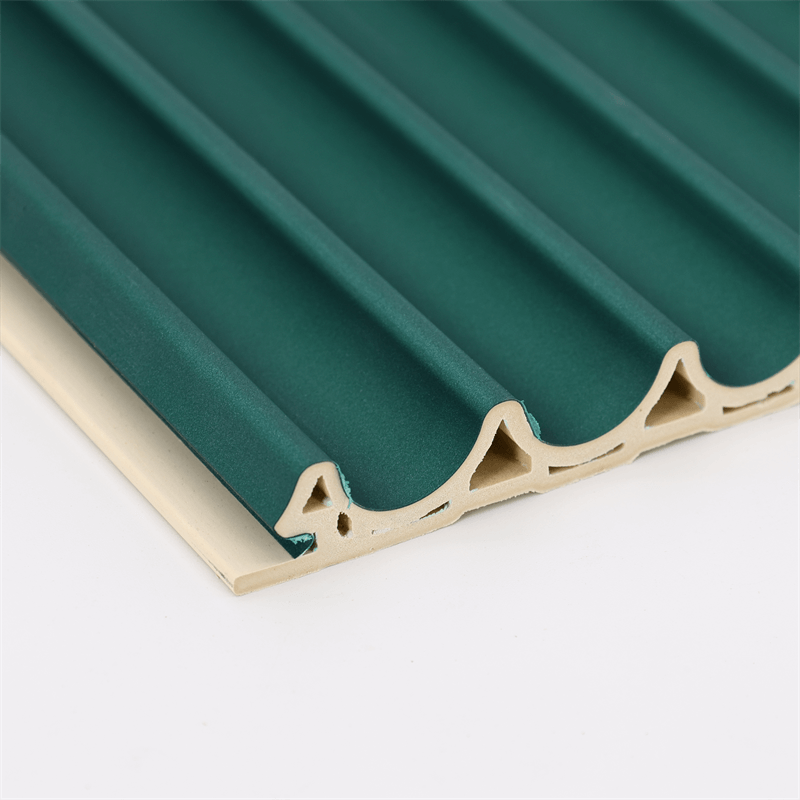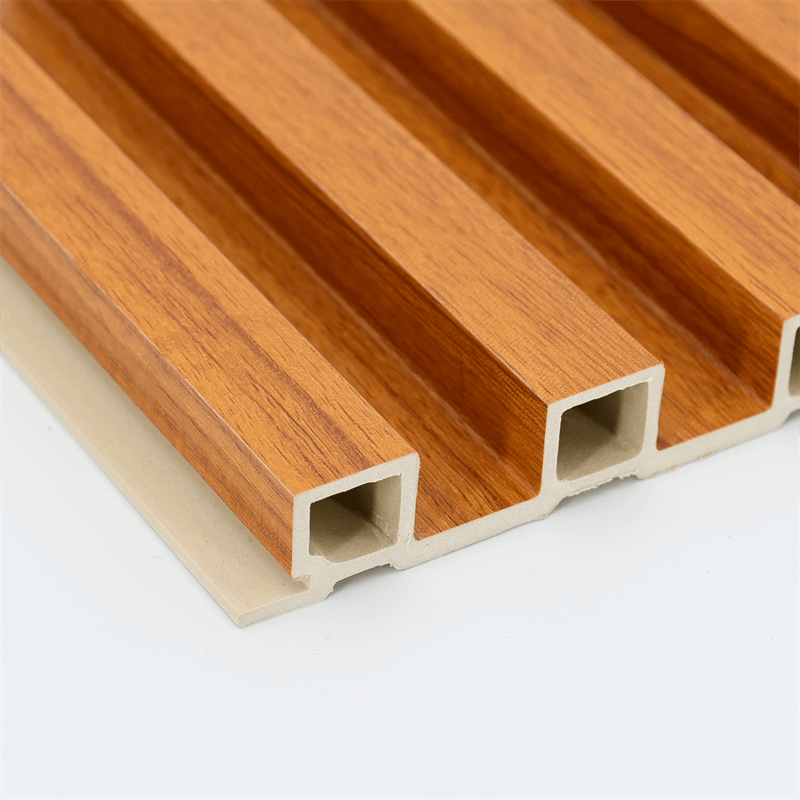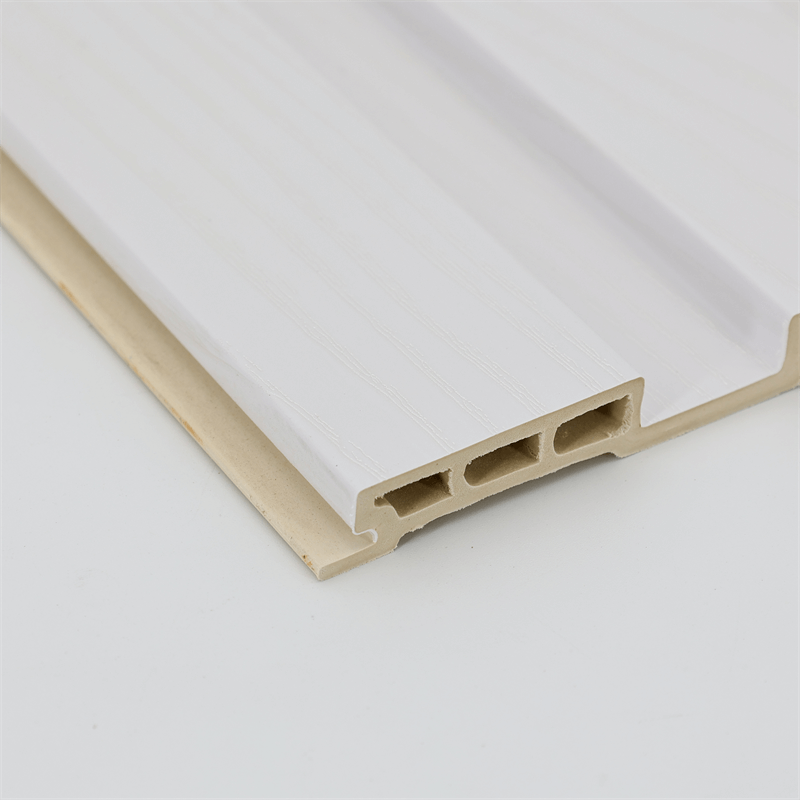Indoor air quality is a crucial factor that affects our health and well-being. With people spending more time indoors, it becomes essential to create a healthy living environment.
WPC (Wood Plastic Composite) wall panels offer a solution to enhance indoor air quality while providing aesthetic appeal and durability.
In this essay, we will explore how WPC wall panels contribute to improved indoor air quality, discussing their low VOC emissions, resistance to mold and mildew, thermal insulation properties, and ease of maintenance.
I. Low VOC Emissions: Promoting a Healthier Environment
Volatile Organic Compounds (VOCs) are chemicals that can be emitted from various sources, including building materials and furniture.
These compounds can have detrimental effects on human health, contributing to respiratory issues, allergies, and other health concerns.
WPC wall panels are known for their low VOC emissions, making them an excellent choice for maintaining a healthier indoor environment.
Unlike some traditional wall panel materials, WPC panels do not release harmful gases or odors into the air.
They undergo a manufacturing process that minimizes the use of toxic chemicals, ensuring that indoor spaces remain free from pollutants.
By using WPC wall panels, homeowners can significantly reduce the levels of VOCs in their living spaces, promoting better indoor air quality and creating a safer environment for occupants.
II. Resistance to Mold and Mildew: Preventing Airborne Contaminants
Mold and mildew growth in indoor spaces can lead to a host of health issues, including allergies, respiratory problems, and compromised immune systems.
WPC wall panels offer inherent resistance to mold and mildew, preventing the growth of these harmful airborne contaminants.
WPC panels are engineered with a blend of materials that do not provide a favorable environment for mold and mildew to thrive.
The moisture-resistant properties of WPC prevent the absorption of water, which is essential for mold growth.
This resistance helps to maintain a cleaner and healthier indoor environment, reducing the risk of respiratory ailments and other health concerns associated with mold exposure.
III. Thermal Insulation Properties: Enhancing Comfort and Energy Efficiency
WPC wall panels possess excellent thermal insulation properties, which contribute to both comfort and energy efficiency in indoor spaces.
These panels help to regulate temperature and reduce heat transfer, resulting in a more stable and comfortable living environment.
The insulation provided by WPC panels helps to maintain consistent indoor temperatures, reducing the reliance on heating and cooling systems.
This energy-efficient feature not only lowers energy consumption but also contributes to reduced utility bills and a smaller carbon footprint.
By enhancing thermal insulation, WPC wall panels create a comfortable living space while promoting environmental sustainability.
IV. Ease of Maintenance: Aiding in Air Quality Control
Maintaining a clean and dust-free environment is crucial for good indoor air quality.
WPC wall panels offer ease of maintenance, simplifying the process of keeping indoor spaces free from dust, allergens, and other airborne particles.
WPC panels have a smooth surface that resists dust accumulation, making them easy to clean with simple wiping or dusting.
Unlike porous materials, such as certain types of wallpaper or textured surfaces, WPC panels do not trap dust and allergens, contributing to improved air quality.
Regular maintenance of WPC wall panels involves minimal effort, helping to reduce the presence of pollutants and ensuring a healthier indoor environment for occupants.

WPC wall panels offer numerous benefits for improving indoor air quality.
With their low VOC emissions, resistance to mold and mildew, thermal insulation properties, and ease of maintenance, these panels contribute to a healthier and more comfortable living environment.
By choosing WPC wall panels, homeowners can create indoor spaces that are free from harmful pollutants, promoting better respiratory health and overall well-being.
Additionally, the energy-efficient nature of WPC panels helps to reduce environmental impact and conserve energy resources.
With their combination of functionality, aesthetics, and air quality benefits, WPC wall panels are a valuable addition to modern interior design, providing a healthier and more sustainable living space.
In conclusion, WPC wall panels offer a multitude of advantages in improving indoor air quality.
Their low VOC emissions, resistance to mold and mildew, thermal insulation properties, and ease of maintenance make them an excellent choice for creating a healthy and comfortable living environment.
By choosing WPC wall panels, homeowners can significantly reduce the presence of harmful pollutants, promoting better respiratory health and overall well-being for themselves and their families.
The low VOC emissions of WPC panels contribute to a healthier indoor environment by minimizing the release of harmful chemicals into the air.
This is especially beneficial for individuals with allergies, asthma, or chemical sensitivities.
The resistance to mold and mildew growth helps prevent the formation of airborne contaminants, reducing the risk of respiratory ailments and other health issues.
Additionally, the thermal insulation properties of WPC wall panels enhance comfort and energy efficiency.
By regulating temperature and reducing heat transfer, these panels create a more stable and comfortable indoor environment.
This, in turn, reduces the reliance on heating and cooling systems, leading to energy savings and a reduced carbon footprint.
Furthermore, the ease of maintenance offered by WPC wall panels aids in controlling air quality.
Their smooth surfaces resist dust accumulation, making them easy to clean and minimizing the presence of dust, allergens, and other airborne particles.
This contributes to a cleaner and healthier living space, reducing the potential triggers for allergies and respiratory problems.
In summary, WPC wall panels provide a holistic solution for improving indoor air quality.
They not only enhance the aesthetics and durability of interior spaces but also promote the well-being of occupants by minimizing the presence of harmful pollutants.
As homeowners increasingly prioritize the health and comfort of their living environments, WPC wall panels emerge as an attractive option to create a healthier, more sustainable, and enjoyable indoor space.


